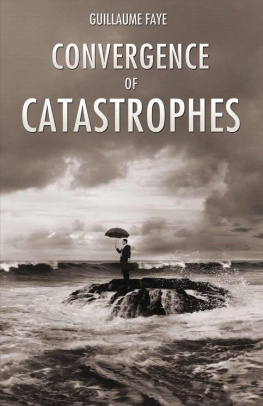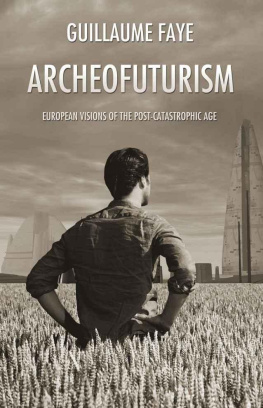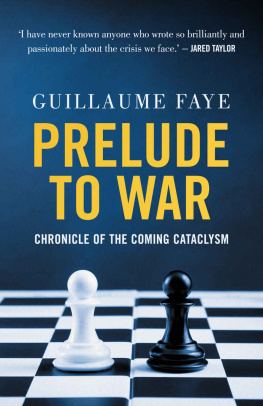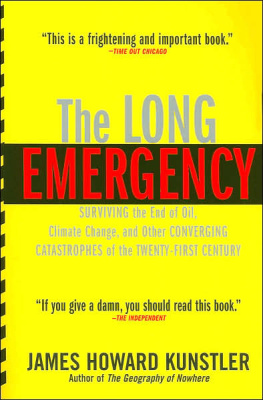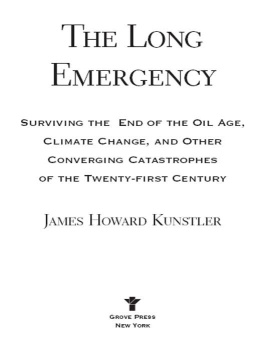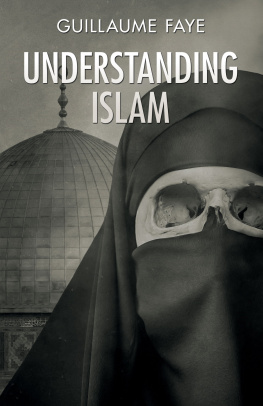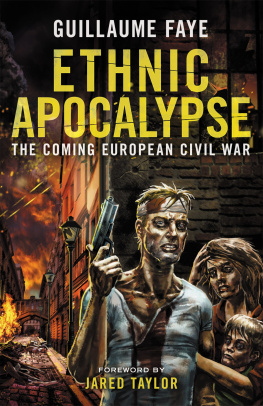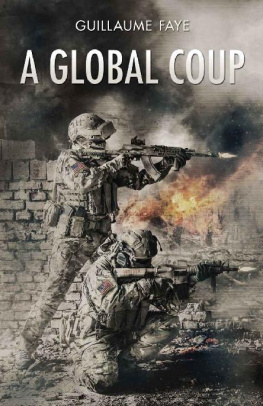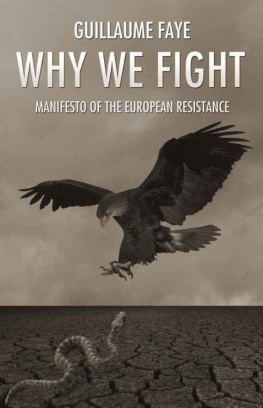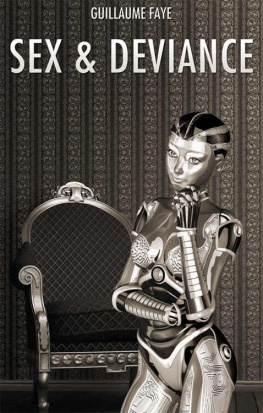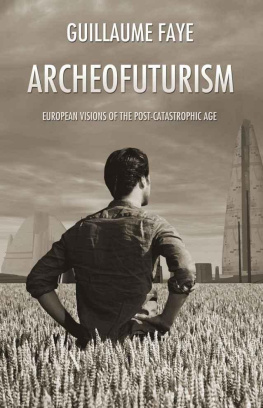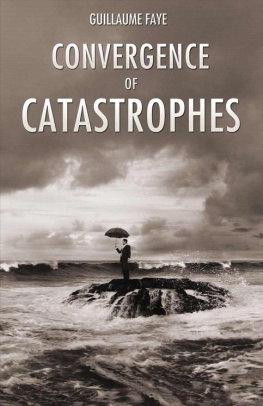Convergence of Catastrophes
Guillaume Faye
Convergence
of
Catastrophes
Translated by E. Christian Kopff
ARKTOS
London 2012
Original edition, La Convergence des catastrophes ,
published in 2004 by Diffusion International Edition, Paris.
First English edition published in 2012 by Arktos Media Ltd.
Copyright to the English edition 2012 by Arktos Media Ltd.
All rights reserved. No part of this book may be reproduced or utilised in any form or by any means (whether electronic or mechanical), including photocopying, recording or by any information storage and retrieval system, without
permission in writing from the publisher.
Printed in the United Kingdom.
isbn 978-1-907166-46-4
BIC classification:
Social forecasting, future studies (JFFR)
Social & political philosophy (HPS)
Nationalism (JPFN)
Translation: E. Christian Kopff
Editor: Matthew Peters
Co-Editor: John B. Morgan
Cover Design: Andreas Nilsson
Layout: Daniel Friberg
ARKTOS MEDIA LTD
www.arktos.com
Table of Contents
A Note from the Editor
T here were no footnotes to the original French edition of this book. Therefore, all footnotes to Fayes text are my own. Wherever possible, references have been given to the English translations of texts; if a reference is to a work in another language, I was unable to locate an English version of it. All references to Web sites in the footnotes were verified as accurate and available during May 2012.
This translation was made directly from the original French edition published in 2004 by Diffusion International Edition. This edition was printed under the name Guillaume Corvus at the request of the publisher.
I would like to thank Professor E. Christian Kopff for the translation, as well as Jared Taylor for providing an excellent Foreword at short notice, and to Sergio Knipe, who translated the back cover text from the French edition. I also wish to express my gratitude to Matthew Peters, who did the bulk of the editing and proofreading for this volume, including painstakingly comparing the translation against the original French.
JOHN B. MORGAN IV
Bangalore, India, May 2012
Foreword
by Jared Taylor
I first met Guillaume Faye in Paris in 2003. On previous visits, I had met a few figures from the French Right, such as Alain de Benoist, Charles Champetier, Bruno Mgret, Bruno Gollnisch. Pierre Vial, and Jean-Yves Le Gallou. All were brilliant and charming men, fully engaged in the struggle to defend their nation and its culture.
But of all these remarkable Frenchmen, it was Guillaume Faye with whom I fell into the quickest intimacy. The two of us a French dissident and an American dissident discovered that we had been driven out of respectable discourse for the same reasons and by the same forces. I hasten to point out that Mr. Faye is a dissident of a much broader sweep than I. As readers of this book will find, nothing is safe from Guillaume Faye: politics, culture, sex, foreign policy, economics, or religion. But when it came to an understanding of race, of the biological foundations of European civilisation, we were immediately old comrades.
Since that time, we have met on both sides of the Atlantic, and Mr. Faye has been a speaker at two conferences I have organised. In 2006, he spoke on The Threat to the West, and in 2012 his subject was America and Europe, Brothers-in-Arms: A French Point of View.
I like to think that those trips have given Mr. Faye a more comprehensive view of the United States. As one of the founders of the French New Right, he shared that groups deep suspicion of Americans, and in his 2001 book Why We Fight he wrote at considerable length about the American adversary.
I certainly do not support most of what the United States government does, but I believe Mr. Faye was mistaken when he wrote, for example, that Americans have tried to form alliances with Islam deliberately to weaken Europe. The multiculturalism and mass immigration that the United States promotes for all White countries certainly weakens them, but the American governments do not push these things only on others. They practice them relentlessly on their own people. The United States therefore does not weaken Europe deliberately. It weakens it, as it weakens itself, perversely and tragically.
Anyone with a vision of the West must look beyond governments to the people they misgovern, and what Mr. Faye and I discovered at that meeting in 2003 was, indeed, what became the theme of his 2012 talk: that the people of America and Europe are brothers-in-arms. I am not certain he knew it when he wrote Why We Fight, but Mr. Faye certainly knows it now: the struggle to save Europe is the struggle to save America. It is the struggle to save all the children of Europe, whether they live in Canada, Australia, South Africa, or anywhere else. When Mr. Faye warns of catastrophe for Europe and writes of his hopes for redemption, he warns and hopes for all of us.
For virtually any other member of the French New Right, it would be heresy to talk of Americans and Europeans as brothers-in-arms. Such language came naturally for Mr. Faye in his recent talk, because he spoke of the American and European peoples rather than their rulers. As he pointed out, the people are the roots from which culture, civilisation, and everything else grows, and if the European peoples wherever they live are replaced by others, all is lost.
Of course, in this book Mr. Faye warns that catastrophe looms no matter what we do: It is impossible to stop the headlong race of contemporary planetary civilisation to the abyss, because there exists no power with the decisive will to do so. How to change the direction of six billion people?
And he warns that it is the people of the West who are the worst prepared: [W]e have never been less prepared: invaded, devirilised, physically and morally disarmed, the prey of a culture of meaninglessness and masochistic culpability. Europeans have never in their history been as weak as at this very moment when the Great Threat appears on the horizon.
The goal of this book is not so much to avert catastrophe, much as I might hope it could, as to prepare for the new age that will dawn after the catastrophe.
For some, Mr. Faye is nothing more than a prophet of doom, but in my view, for at least the last ten years, he has been Europes foremost spokesman for our people. Thanks to the translations by Arktos, his books are now available to the English-speaking world.
I particularly welcome this translation by E. Christian Kopff, whom I have known for nearly twenty years, and for whom I have the highest admiration. He has fully captured the slashing, uncompromising style that makes Mr. Faye so provocative and so memorable. I cannot think of a better match of author, publisher, and translator to bring these important ideas to new readers, and I envy them the pleasure of their first encounters with the work of Guillaume Faye.
Jared Taylor
Oakton, Virginia, 3 May 2012
Jared Taylor has been the editor of the journal American Renaissance since 1990, and founded the New Century Foundation in 1994, both of which have been among the most prominent institutions to analyse the problems being faced by those of European descent worldwide. He is also the author of Paved with Good Intentions: The Failure of Race Relations in Contemporary America (New York: Carroll & Graf, 1992); The Real American Dilemma: Race, Immigration, and the Future of America (Oakton, Virginia: New Century Foundation, 1998); and White Identity: Racial Consciousness in the Twenty-first Century (Oakton, Virginia: New Century Foundation, 2011).
Introduction: An Explosive Cocktail
The modern world is like a train full of ammunition running in the fog on a moonless night with its lights out.

